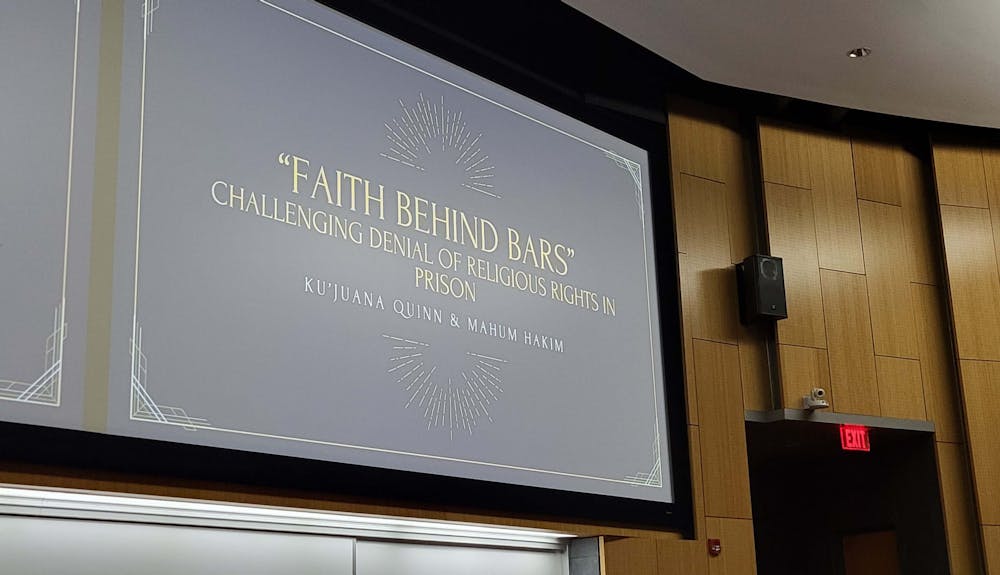Discussing discrimination of the Islamic faith behind bars

The first amendment protects the right to freedom of speech, press, religion and assembly. What happens when part of this amendment isn't being upheld behind cell bars?
That's the question that was addressed at 'Faith Behind Bars: Challenging Denial of Religion Rights in Prison' on April 17 in the French Auditorium.
The event was a collaboration between Student Advocates for Prison Reform and the Incarcerated (SAPRI) and the Muslim Student Association (MSA). The respective president and vice president of these organizations, Ku’Juana Quinn and Mahum Hakim, led the discussion.
The conversation started with the first amendment, and how it legally cannot be denied to United States citizens, including prisoners. Despite this, Quinn said the issue still crops up in prisons across the U.S.
"The idea of religious liberty is baked into the constitution," she said. "It's a federal law to protect the religious liberty of prisoners ... so why isn't anything being done? Why isn't this being respected and given to everyone?"
Hakim said some of the aspects of the Islamic faith that are denied in prison, such as:
- Halal/Kosher food (or food that prepared with minimal suffering to animals, according to WebMD)
- Prayer restrictions
- Limited access the religious texts like the Quran
- Denying the right to wearing hijabs
- A lack of accommodations during Ramadan (a month in which Muslims have to fast from sunrise to sundown).
She also referenced a recent example where Islamic practices were discriminated against in Michigan. For example, with the Marvin Owens case where he was not receiving food accommodations during Ramadan. She said this is not the first time cases like this have been filed, as they have been filed in other states as well.
"This is not a streamlined issue," Hakim said. "Some prisons are accommodating and others are not, and that's the issue."
Quinn added onto this, saying that most incarcerated people do not choose where they end up, and the criminal justice system simply places them in a state prison. As a result, they can end up in places that are not accommodating.
"It's already hard enough being incarcerated," she said. "But being discriminated against while in prison, not getting accommodated and not getting there needs met does not help ... It maybe making it harder for them to integrate into society later."
The event ended with an open discussion segment, in which students who wanted to comment were brought a microphone. One student who spoke during this was Macaulay Johnston, who said students should strive to educate themselves on Muslim issues and then educate others.
Johnston is a member of SAPRI who came in support of Quinn. He said after learning everything he had at the event, he know wants to see what he can do in his community to provide support and learn more.
"My stepdad, he worked in the criminal justice system," he said. "I'm wondering how many people he worked with who practiced the faith, and if he saw this and did anything. But mainly, I just have more questions I wanna go find out because there was so much I learned today."
Quinn and Hakim said students should leave with three things in mind: allyship, advocacy and activism. While some actions are being taken, like policy reforms, training and increasing access, they said students should take the knowledge they have gained and use it to learn more or speak out in their community.






